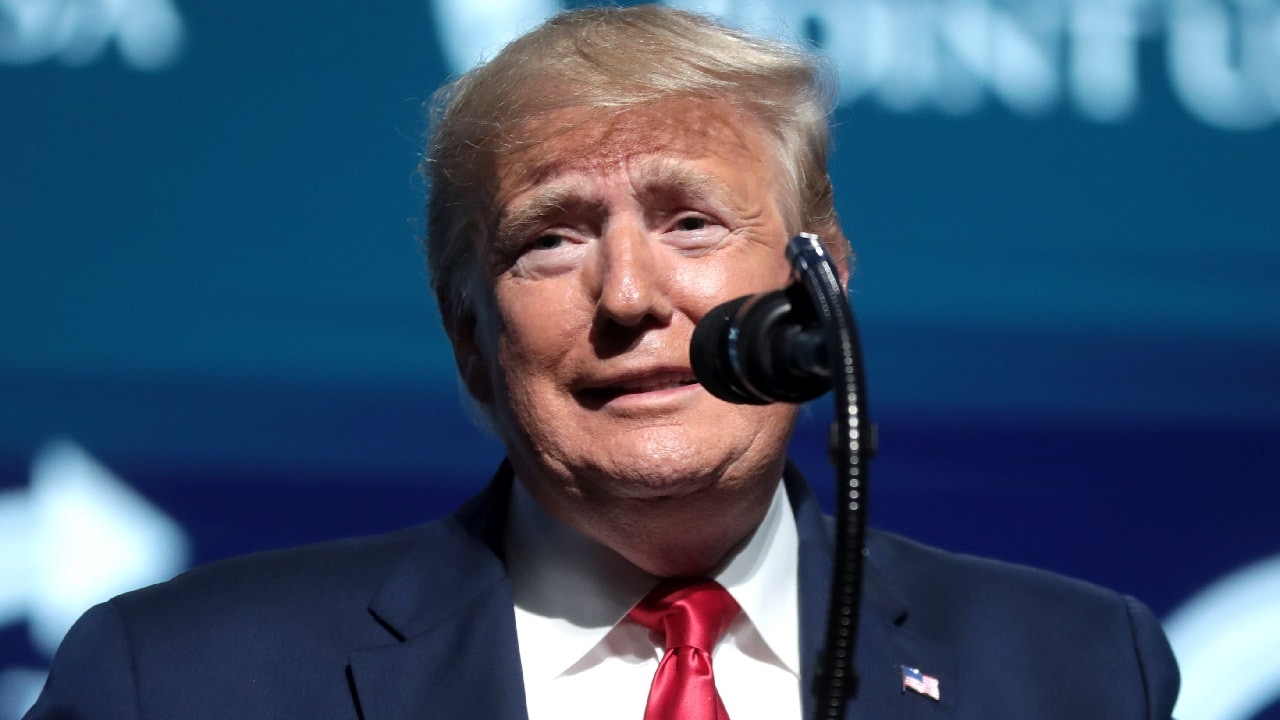Just four states could determine the outcome of the 2024 presidential election – Michigan, Pennsylvania, Wisconsin, and Georgia. Donald Trump narrowly carried all four in 2016, which allowed him to best Hillary Clinton in the Electoral College, despite her four million popular vote advantage nationwide.
Four years later, Joe Biden flipped all four states back to the Democrat, but the outcome in most cases was just as close – just 12,000 votes in the case of Georgia, 35,000 in the case of Wisconsin.
Both contests saw historic reversals. Georgia hadn’t voted Democratic since Jimmy Carter claimed his home state in 1976. Like most of the South, it was considered deep Red.
Pennsylvania and Wisconsin hadn’t voted Republican in years. Michigan, long a Democratic bastion of union labor, was thought to be among the bluest of the blue. But in 2016, Donald Trump managed to swing all three.
Swing Accounting
What accounted for these reversals? Profound but subtle demographic shifts that have been accumulating for some time.
In the case of Georgia, an upsurge in African-American political engagement, first stimulated by Barack Obama’s presidential campaigns in 2008 and 2012, has brought an expanded pool of Black voters to the polls, allowing Democrats to narrow the GOP’s traditional advantage in the Peach State.
The same trend is apparent in North Carolina, where Republican candidates have won relatively narrow victories since Bill Clinton, a Southerner, captured the state twice – in 1992 and 1996.
In the Rust Belt, a vastly different mobilized voter constituency – blue-collar workers – proved decisive in 2016. Trump, defying history, brought thousands of non-college-educated voters to the polls by promising to boost wages and bring manufacturing jobs back to the region.
His opponent, Hillary Clinton, was so optimistic that these voters would stay in the Democratic camp that she largely ignored the Rust Belt, despite pleas from party field workers who saw the writing on the wall and begged her to campaign more aggressively.
In 2020, Joe Biden took the concerns of blue-collar workers more seriously and managed to sway large numbers to back his candidacy – enough to flip the Rust Belt back to the Democrats. His margins of victory were small but still decisive – 150,000 in the case of Michigan, 80,000 in the case of Wisconsin.
2024 Swings
Despite the perception that a prospective Trump-Biden contest in 2024 is a dead heat, many Democrats are confident that Biden can preserve his Rust Belt advantage and still sweep to victory in 2024.
Polling in Wisconsin, where Biden enjoys a substantial single-digit lead over the former president, according to the polling firm 538, seems to bear out that optimism. Biden has a smaller lead in Pennsylvania, but polls have consistently favored him to win the state in 2024.
Not so in the case of Michigan, where Biden leads Trump 45.3 percent to 43.8 percent, a margin of just 1.5 percent, with 11 percent still undecided, according to the latest Real Clear Politics polling average. Some polls have the two candidates tied, a cause for growing concern at the White House.
Michigan and UAW Strike
That concern has been magnified in recent days because of the strike declared by Michigan auto workers at GM plants in the state.
The United Auto Workers (UAW), a key Biden trade union ally, has sought Biden’s backing but the president, who also enjoys close ties to GM, has been reluctant to wade in directly, instead sending emissaries from the White House to try to mediate the dispute quietly.
Trump, sensing a fresh political opening, is preparing to pounce. This Wednesday, while his GOP rivals engage in their second nationally televised debate, the former President plans to deliver a major prime-time address in Detroit before an audience of striking workers, denouncing Biden for “abandoning” them.
Donald Trump previewed his line of attack in an interview that aired a week ago Sunday on Meet the Press, now hosted by Kristen Welker. The former President said “auto workers will not have any jobs” because “electric cars, automatically, are going to be made in China.”
“The auto workers are being sold down the river by their leadership, and their leadership should endorse Trump,” he added.
Donald Trump’s bold intervention and the continuing threat he poses to Biden in a critical swing state seems to have rattled the President, who has just announced he will join striking workers on the picket line, potentially upstaging his predecessor.
The UAW, for its part, has denounced Trump’s gambit, calling the man who captured a surprising 37 percent of the union vote in 2016 a billionaire out of touch with the needs of American workers.
The political stakes are high here. If the UAW fails to come away with a victory – or at least, a favorable compromise – it could prove highly embarrassing to Biden, and provide further evidence to his critics that he’s simply too old and weak to provide the country with effective leadership.
A successful resolution, on the other hand, could help boost Biden’s sagging fortune.
Either way, the deepening imbroglio will provide yet another high-profile media showcase for Donald Trump, further deflecting attention away from the legal drama that constantly threatens to engulf him.
And it will further diminish the claims of his GOP rivals that their own candidacies are anything more than a sideshow.
Stewart Lawrence is a veteran social scientist and political columnist on immigration and Latino affairs for Huffington Post, Guardian (UK), Daily Caller, and other outlets.
From the Vault

